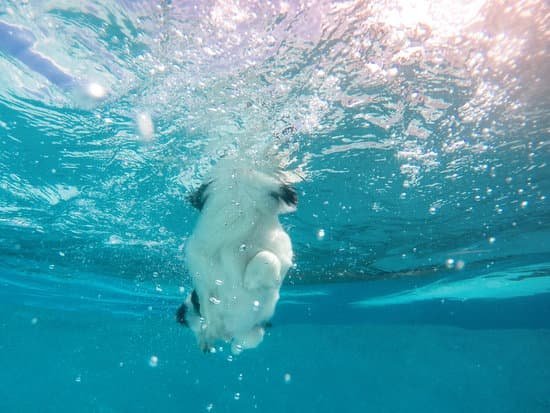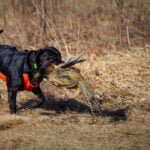Can dogs be trained to detect covid? The use of canine detection in various fields has been well-documented, but its potential role in the fight against Covid-19 is relatively new and promising. This article aims to explore the possibility of utilizing dogs for detecting the presence of the coronavirus, their capabilities, and the ethical and practical implications of this innovative approach.
As researchers and scientists continue to seek more efficient ways to detect and mitigate the spread of Covid-19, the potential use of canines brings about an intriguing prospect. With their acute sense of smell, dogs can be trained to detect a wide array of scents, including those associated with certain diseases. This has led to investigations into whether dogs can be effectively trained to detect the presence of Covid-19 in individuals.
Exploring the science behind canine detection will provide insight into how dogs are able to utilize their olfactory abilities in such a manner that makes them valuable assets in disease detection. Moreover, understanding the methods and techniques used in training canines for this purpose, as well as comparing canine detection with traditional testing methods, will shed light on the advantages and limitations of using dogs in identifying Covid-19.
The Science Behind Canine Detection
Dogs have an incredible sense of smell, with around 300 million olfactory receptors in their noses, compared to about 5-6 million in humans. This means that they are able to detect a wide range of scents, including those that are undetectable to the human nose. This remarkable ability has led to the exploration of whether dogs can be trained to detect Covid-19.
Research has shown that dogs can indeed be trained to detect various diseases, including certain types of cancer and malaria, by sniffing samples such as urine, saliva or sweat. It is believed that the volatile organic compounds (VOCs) produced by these diseases create unique odors that dogs are able to pick up on. Given this understanding, scientists and researchers have been investigating whether dogs can also be trained to detect Covid-19 by identifying specific VOCs associated with the virus.
In fact, recent studies have shown promising results in this area. For example, a study conducted by the London School of Hygiene and Tropical Medicine found that specially trained dogs were able to identify people infected with coronavirus with a high degree of accuracy.
The study used samples of socks worn by individuals who tested positive for Covid-19 and found that the dogs were able to distinguish these samples from those worn by non-infected individuals. These findings have sparked further interest in the potential use of canine detection as a supplementary method for identifying cases of Covid-19.
| Can Dogs Be Trained to Detect Covid? | Yes |
|---|---|
| Covid Detection Accuracy | High degree of accuracy |
| Examples | London School of Hygiene and Tropical Medicine’s study |
Training Canines to Detect Covid-19
Canine detection of Covid-19 has shown promising results in various studies and real-life applications. Training dogs to detect the virus involves specific methods and techniques that capitalize on their exceptional sense of smell. There are several approaches used to train canines for Covid-19 detection, including:
- Using positive reinforcement: Trainers use treats or toys as rewards when a dog successfully identifies the scent of the virus.
- Utilizing training aids: Some organizations use synthetic replicas of the virus or infected samples to familiarize dogs with the scent of Covid-19.
- Employing specialized training environments: Dogs are trained in controlled environments where they can focus on detecting the virus without distractions.
The process of training canines to detect Covid-19 involves extensive repetition and rigorous testing to ensure accuracy and reliability. Additionally, trainers work closely with experts in virology and public health to refine their methods and enhance the effectiveness of canine detection.
Canine detection not only shows potential for identifying symptomatic individuals but also serves as a non-invasive and rapid screening method. With proper training, dogs have demonstrated the ability to detect the virus even in asymptomatic carriers. This highlights their potential contribution to public health efforts in containing the spread of Covid-19.
There is ongoing research and development in this field, focusing on optimizing training methods, expanding canine detection capabilities, and exploring potential applications beyond Covid-19. As such, it is essential to continue supporting these initiatives, as they can dogs be trained to detect covidhave the potential to complement traditional testing methods and significantly impact our battle against this global pandemic.
Canine Detection vs Traditional Testing
While traditional testing methods for Covid-19 have been effective in identifying cases, there is growing interest in the use of canine detection as an alternative or complementary approach. The sense of smell possessed by dogs is incredibly powerful, with the ability to detect odors at concentrations as low as parts per trillion. This raises the question: can dogs be trained to detect Covid-19?
The science behind canine detection revolves around the incredible olfactory abilities of dogs. According to research, dogs are able to detect specific scents associated with illnesses, including viruses and bacteria. This has led to the exploration of training methods and techniques that harness the natural abilities of canines to identify Covid-19 in individuals. By using samples from infected individuals, trainers can teach dogs to recognize the unique scent associated with the virus.
When comparing canine detection to traditional testing methods for Covid-19, there are several pros and cons to consider. One major advantage of using trained dogs is their ability to quickly screen a large number of individuals in a short amount of time, potentially identifying asymptomatic carriers who may otherwise go undetected.
However, it’s important to note that while canine detection shows promise, it should not replace traditional testing methods but rather be used as a complementary tool in our fight against Covid-19.
Success Stories
Airport Screening
In recent months, numerous airports around the world have started using trained detection dogs as part of their Covid-19 screening protocols. Helsinki Airport in Finland, for example, has been conducting trials with dogs that are able to detect the virus with incredible accuracy. Passengers are asked to swab their necks and wrists and deposit the samples in metal containers.
The dogs then sniff these containers to determine if the travelers are infected with Covid-19. This method has shown promising results, with the dogs able to identify positive cases even before the individuals themselves were aware of their infection.
School Testing
As schools strive to provide a safe environment for students and staff, some institutions have turned to canine detection as an additional layer of protection against the spread of Covid-19. One school district in Virginia, USA, implemented a program where trained sniffer dogs were used to regularly screen students and staff for the virus. The use of detection dogs helped identify asymptomatic carriers and prevent potential outbreaks within the school community.
Hospital Deployment
In Spain, several hospitals have incorporated trained detection dogs into their Covid-19 testing procedures. These canines are deployed in high-traffic areas such as emergency rooms and waiting areas to quickly assess individuals for possible infection. Studies have shown that these detection dogs could accurately identify positive cases at an impressive rate, providing hospital staff with valuable information in real-time.
The success stories of using trained detection dogs for detecting Covid-19 highlight the potential impact that these animals can have in mitigating the spread of the virus. As more research is conducted and more institutions adopt canine detection methods, it becomes increasingly clear that this approach holds great promise in our battle against Covid-19.
Ethical Considerations
Canine detection of Covid-19 has sparked interest in the potential role that dogs can play in public health. While the idea may seem novel, the concept of using dogs to detect diseases is not new.
Dogs have been trained to detect various illnesses such as cancer, diabetes, and malaria through their exceptional sense of smell. The use of canines to detect Covid-19 raises ethical considerations that must be taken into account as this method gains traction in the fight against the pandemic.
One ethical consideration is the welfare of the dogs involved in Covid-19 detection. It is essential to ensure that these animals are well-cared for and their training methods are humane.
In addition, there should be guidelines for the appropriate working conditions for these detection dogs to prevent any harm or stress to them. Furthermore, it is crucial to address concerns about privacy when using canine detection in public spaces, as people may feel their personal information is being exposed when a dog alerts on them.
Another important ethical consideration is ensuring accuracy and reliability in canine detection of Covid-19. While studies have shown promising results regarding the ability of dogs to detect the virus, there is still a need for rigorous testing and validation of this method. Additionally, there should be transparency regarding the limitations and potential errors that can arise with canine detection. This will help manage expectations and prevent overreliance on this method as a sole means of detecting Covid-19.
| Ethical Considerations | The Role of Canine Detection in Public Health |
|---|---|
| Welfare of detection dogs | Accuracy and reliability |
| Privacy concerns | Transparency on limitations |
Future Implications
While the use of trained dogs to detect Covid-19 has shown promising results, the potential applications of canine detection go beyond just this current pandemic. With their remarkable sense of smell, dogs can be trained to detect a variety of diseases and health conditions, making them valuable assets in the field of public health.
Early Detection of Other Diseases
One potential application of canine detection is in the early detection of other diseases such as cancer, diabetes, and malaria. Research has shown that dogs can be trained to detect specific odors associated with these diseases, which could lead to earlier diagnosis and treatment for patients. This not only has the potential to save lives but also reduce healthcare costs by catching diseases in their early stages.
Enhanced Security Measures
In addition to disease detection, canines can also be utilized for enhanced security measures at places such as airports and border crossings. With their ability to sniff out various substances and odors, trained dogs can help identify illegal drugs, explosives, and even agricultural products that pose a risk to public safety. Integrating canine detection into security protocols can provide an added layer of protection against potential threats.
Given these potential applications, it is clear that training dogs to detect Covid-19 is just the beginning of utilizing their incredible sense of smell in the fight against various health and security challenges. As research continues to expand in this field, it is likely that we will see even more innovative uses for canine detection in the future.
Conclusion
In conclusion, the use of dogs in detecting Covid-19 holds great promise and potential in the battle against this global pandemic. The science behind canine detection, especially their incredible sense of smell, provides a strong foundation for training them to effectively identify the virus. Real-life success stories have demonstrated the accuracy and reliability of canine detection, showcasing their potential in complementing traditional testing methods.
While there are certainly ethical considerations regarding the use of canines in public health, with proper training and protocols in place, they can serve as valuable allies in identifying Covid-19 carriers, especially in settings where traditional testing may not be readily available or practical. Additionally, the potential applications of canine detection go beyond Covid-19 and could have far-reaching implications in future public health crises.
As we look ahead, it is clear that canine detection can play a significant role in our fight against Covid-19. With ongoing research and collaboration between scientists, trainers, and public health officials, we can continue to explore the full extent of what dogs can contribute to detecting this virus. While they may not replace traditional testing methods entirely, they can certainly serve as valuable tools in our efforts to control and mitigate the spread of Covid-19.
Therefore, it is imperative to continue supporting and investing in this promising area of research and application. Can dogs be trained to detect covid has shown immense potential.
Frequently Asked Questions
Can Your Dog Tell if You Have COVID?
Some studies have suggested that dogs might be able to sniff out COVID-19 in humans, but more research is needed to confirm this. It’s not a reliable method for diagnosis at this time.
Can I Test My Dog for COVID With an at Home Test?
At-home COVID tests designed for use in humans are not appropriate for testing dogs. If you suspect your dog may have COVID-19, it’s best to contact a veterinarian for guidance on proper testing.
Can My Dog Sit With Me if I Have COVID?
If you have COVID-19, it’s best to avoid close contact with your dog as much as possible to reduce the risk of spreading the virus. If you must interact with your dog, wear a mask and practice good hand hygiene to protect them.

Welcome to the blog! I am a professional dog trainer and have been working with dogs for many years. In this blog, I will be discussing various topics related to dog training, including tips, tricks, and advice. I hope you find this information helpful and informative. Thanks for reading!





